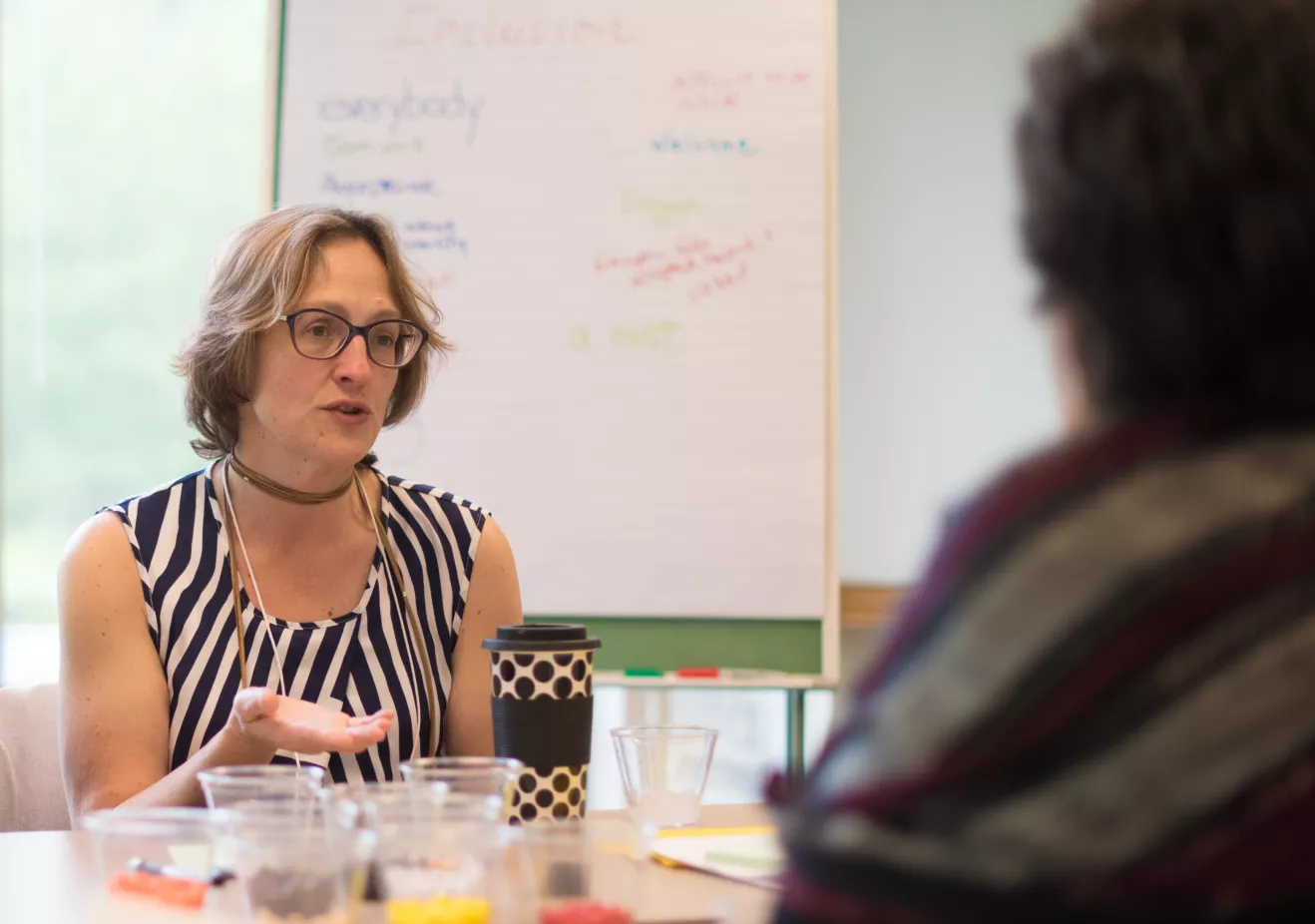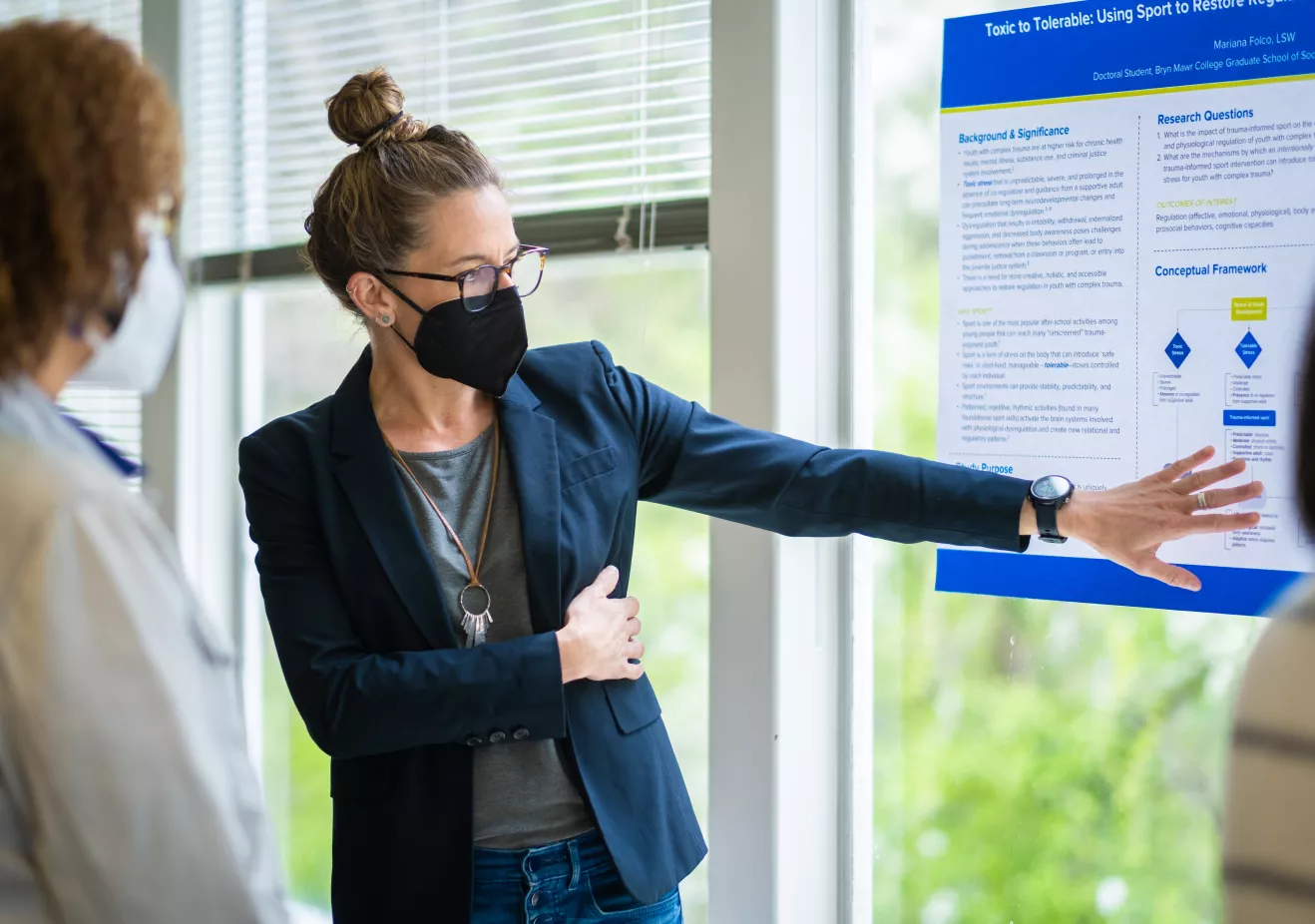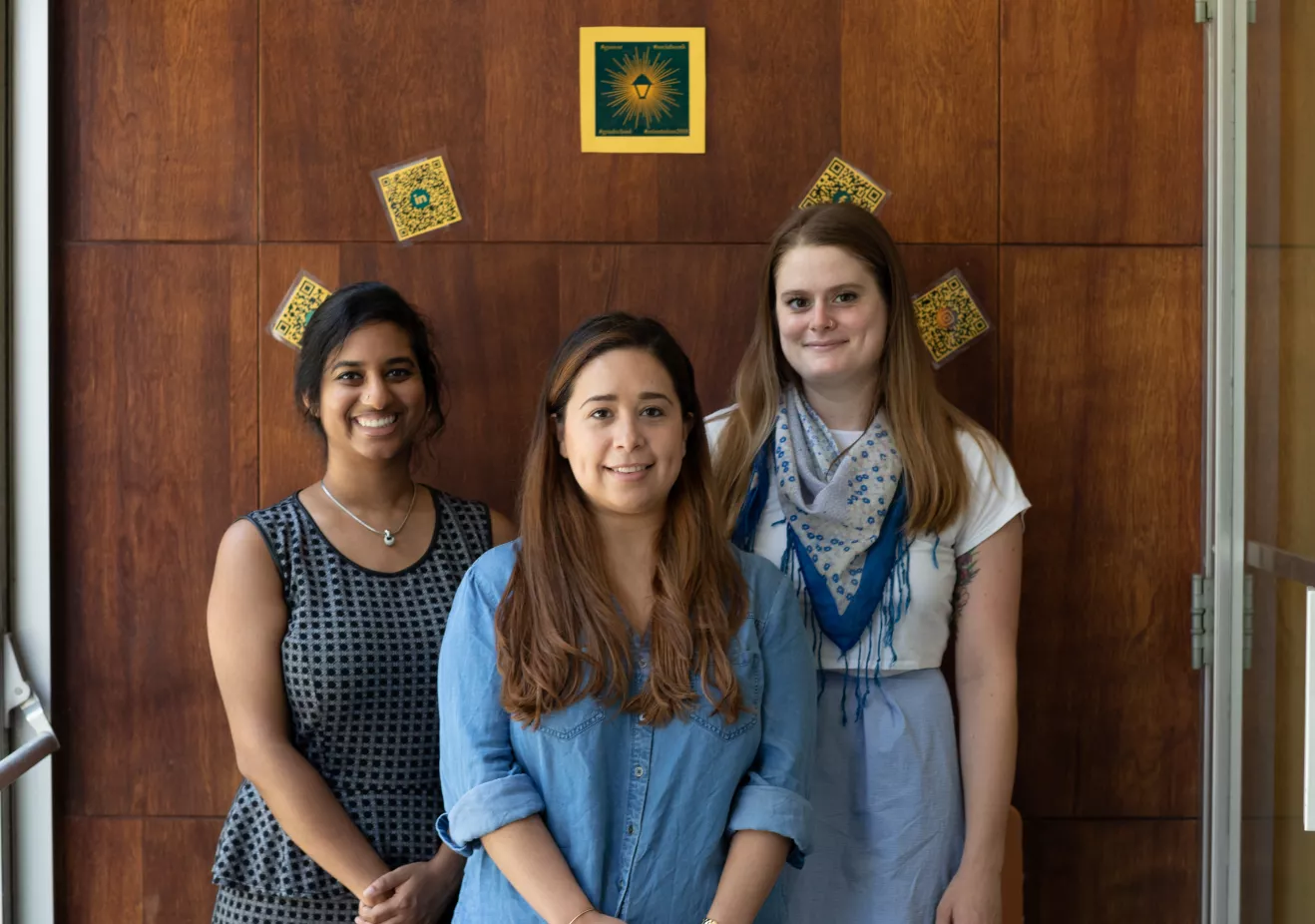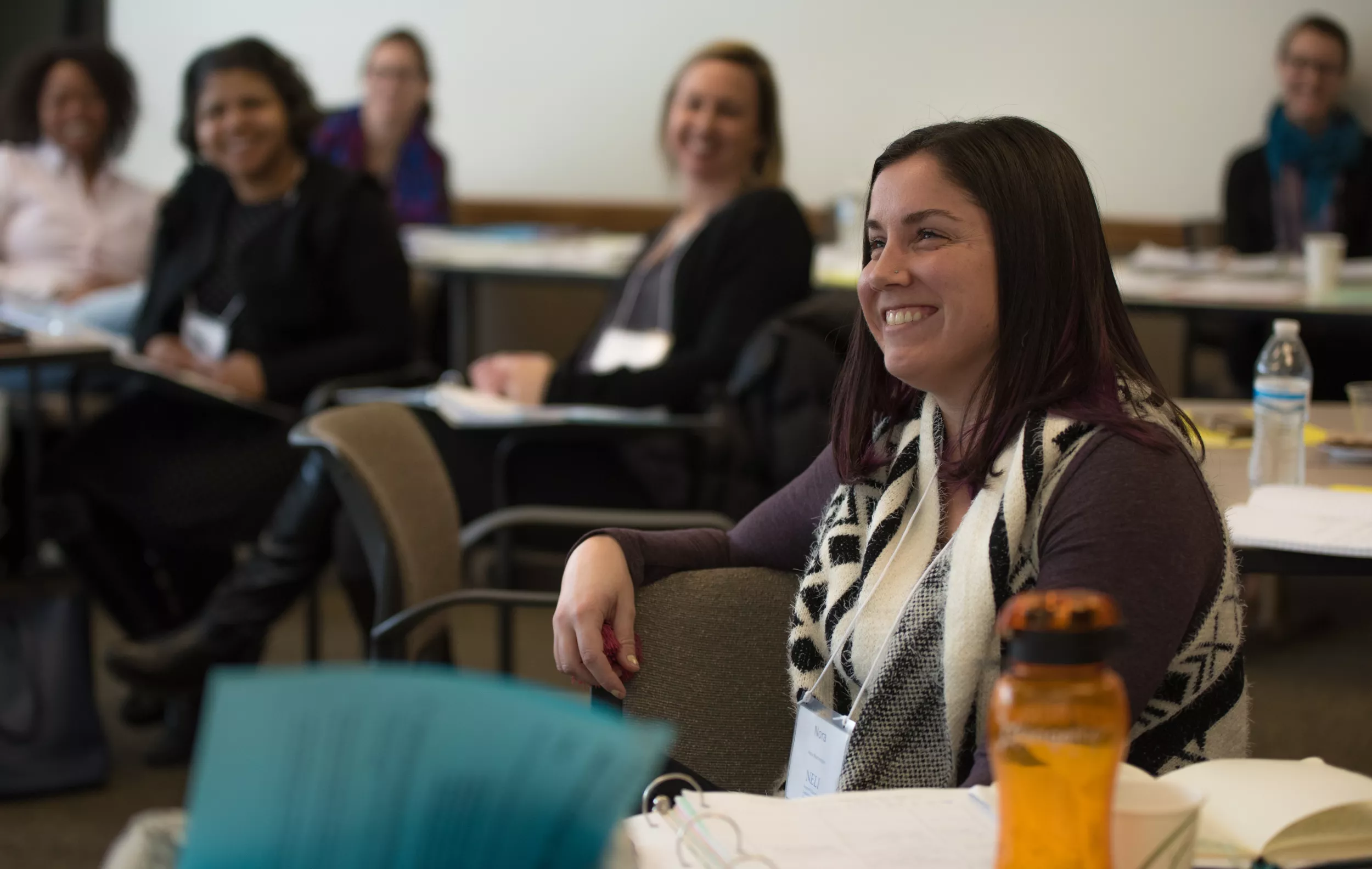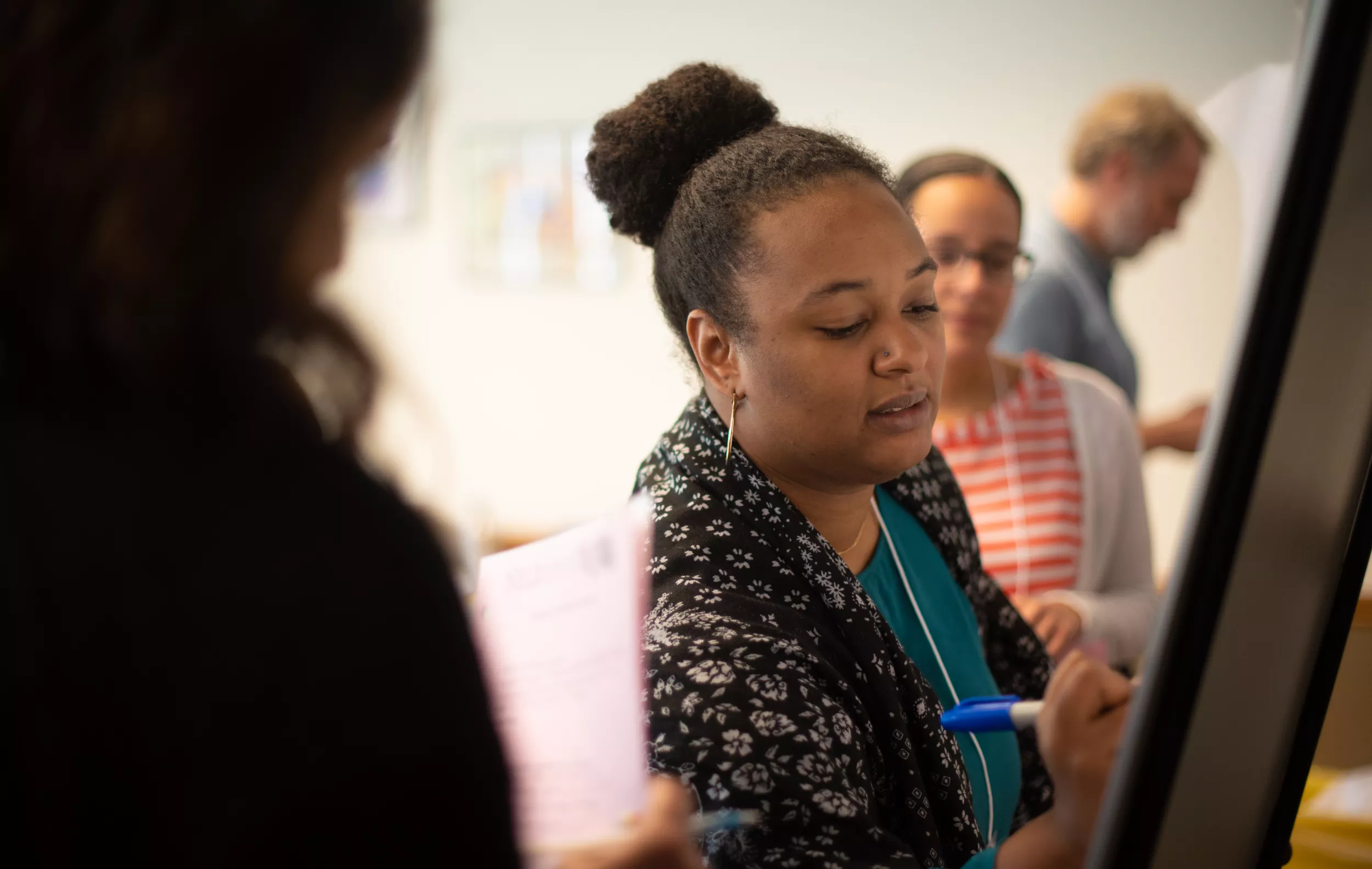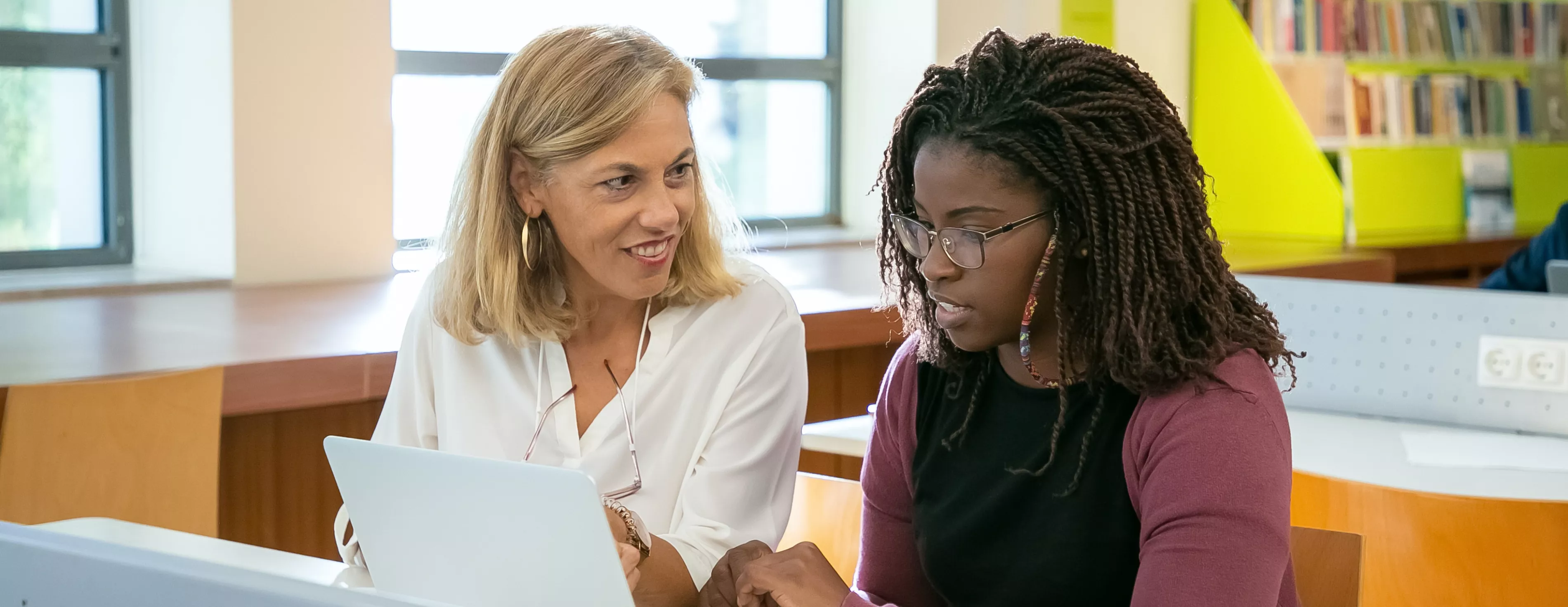
Doctoral Program in Social Work (Ph.D.)
GSSWSR is proud to offer a nationally renowned Ph.D. program in social work. The country's first Ph.D. degree in social work was awarded at the Graduate School for Social Work and Social Research in 1920.
Explore the Ph.D. Program
Our Ph.D. students—like our faculty—come to Bryn Mawr from throughout the U.S. and internationally to join in our deep commitment to scholarship and our field. Graduates of the program are extremely well situated to pursue academic positions throughout the country and abroad, and indeed our alumni can be found in many key positions of leadership.
The school’s traditional strengths in clinical practice, social theory, and research help to foster a generative community that values innovative approaches that reach across traditional silos to better address the central problems we face as a field.
Our Primary Areas of Focus for Research and Teaching

Health and Mental Health Across the Lifespan

Children, Families, and Society
A Close-Knit Community of Scholars
The centering of faculty-student relationships has been core to our Ph.D. program’s success for almost a century. A distinctive feature of our Ph.D. program is our small size—typically enrolling cohorts of just three or four students per year, and class sizes are typically seven students. This model allows for students to engage and learn more deeply, as individuals, as a cohort, and in close collaboration with faculty.

Access the Larger Bryn Mawr Community

Resources Beyond GSSWSR
To support our focus on interdisciplinary social work scholarship within a broader liberal arts tradition, students have access to a wealth of resources beyond GSSWSR. Ph.D. students often connect with faculty throughout Bryn Mawr College for special projects and innovative research across traditional disciplinary lines. Students can also take electives to pursue additional areas of focus within the college of arts and sciences at the University of Pennsylvania, as well as at Haverford and Swarthmore colleges.
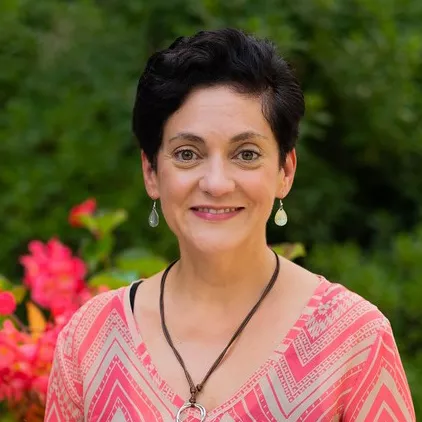
Contact Us
Doctoral Program in Social Work (Ph.D.)
Sara Bressi
Ph.D. Program Director
610-520-2634
sbressi@brynmawr.edu
